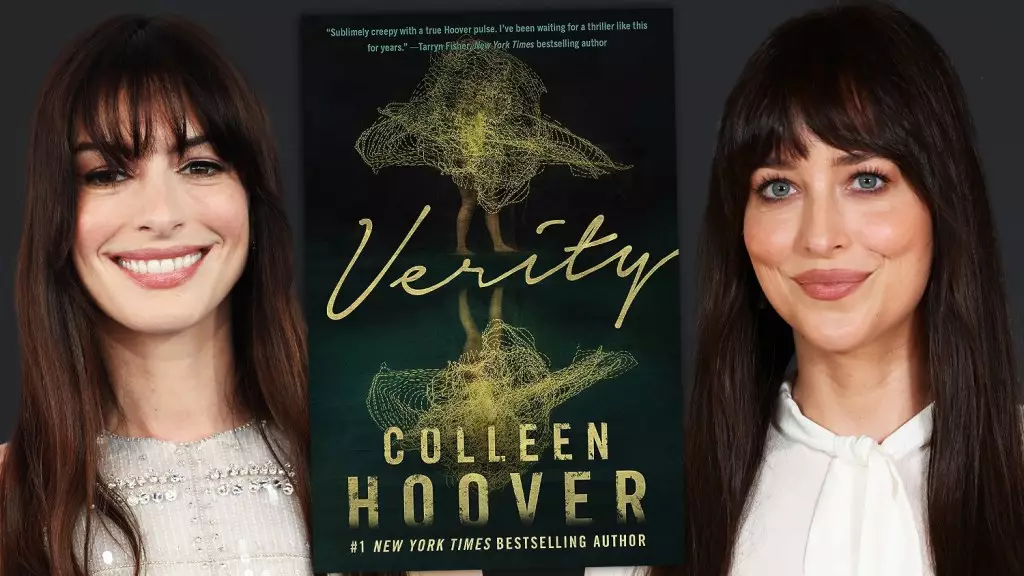The upcoming adaptation of Colleen Hoover’s bestseller, “Verity,” signifies more than just another entry in the thriller genre; it embodies a potent shift toward stories that intertwine strong female narratives with psychological depth. As Amazon MGM Studios sets the release date for October 2, 2026, industry insiders are increasingly captivated by the potential of this film to carve out a new niche in mainstream cinema. Historically, the first weekends of October have been fertile ground for female-centered thrillers—”Gone Girl” and “The Girl on the Train” serve as potent examples of how female-led narratives can command audiences and box-office success. The casting of powerhouse actresses like Anne Hathaway and Dakota Johnson signals a deliberate move to elevate the complex portrayal of female protagonists in a genre often dominated by male-centric stories.
Challenging Genre Conventions with Female Agency
“Verity” promises to subvert traditional thriller tropes by focusing on a struggling female author immersed in a world of familial secrets and psychological manipulation. The plot, centered around Lowen Ashleigh’s unsettling discovery in a high-profile ghostwriting gig, provides fertile ground for exploring themes of agency, manipulation, and hidden truths through a distinctly feminine lens. The presence of powerful women behind the camera—such as director Michael Showalter and executive producer Anne Hathaway—further bolsters the film’s emphasis on female agency and perspective. This likely signals an intentional effort to craft a narrative that not only thrills but also highlights the resilience and complexity of its female characters, defying the often superficial treatment of women in similar genre films.
The Significance of Star Power and Production Expertise
The casting of high-profile stars like Anne Hathaway and Dakota Johnson adds layers of intrigue and credibility to “Verity.” Hathaway’s proven ability to portray complex, morally ambiguous characters aligns perfectly with the story’s dark subject matter, while Johnson’s rising prominence paves the way for a fresh, compelling on-screen presence. Additionally, the involvement of seasoned producers, including Stacey Sher and Jordana Mollick, underscores a commitment to craftsmanship and narrative integrity. The film’s diverse production companies, from Eat the Cat to Somewhere Pictures, reflect a collaborative effort committed to delivering a visually compelling and emotionally resonant adaptation. Interestingly, the film faces a competitive release environment, poised to challenge Warner Bros’ untitled Tom Cruise project, which underscores the significance of strong storytelling and star power in vying for audience attention.
Transforming Bestseller into Cultural Catalyst
The adaptation of Hoover’s “Verity” exemplifies a broader trend of turning literary bestsellers into cinematic phenomena that foster cultural conversations. More than mere entertainment, such films have the potential to explore complex themes around gender, power, and mental health, resonating deeply with contemporary audiences seeking stories that reflect nuanced realities. Given the initial trailer reveal at CinemaCon and the strategic release timing, “Verity” is positioned not only as a commercial achievement but as a conversation starter—challenging viewers to confront uncomfortable truths about the human psyche. If executed with the depth and dedication it promises, “Verity” could mark a turning point in how female-driven thrillers are perceived and appreciated in mainstream culture. This film represents a bold assertion that female empowerment extends beyond the screen into the very core of psychological thriller storytelling.
